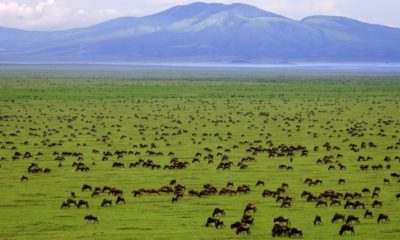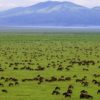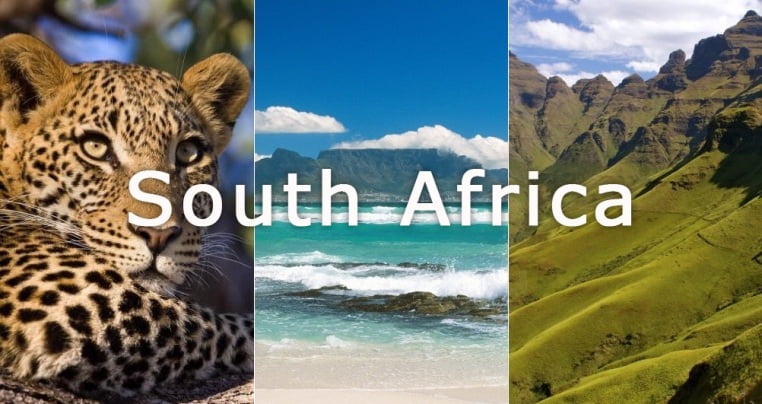Africa
Backpacking Zimbabwe Need To Know
Basics
Languages:
Capital:
Currency:
|
Dial Code:
International Access Code:
Emergency Services Number:
Time Difference:
|
Recommended For Further Information On Zimbabwe
Lonely Planet Southern Africa
The below is a very basic guide. If you are heading to Zimbabwe I highly recommend picking up a copy of Lonely Planet’s; Southern Africa. It provides the most relevant, up-to-date advice on what to see and what to skip. It also includes coverage of Botswana, Lesotho, Malawi, Mozambique, Namibia, South Africa, Swaziland and Zambia…

Entry
Most visitors need a tourist visa to enter Zimbabwe. You can get a visa on arrival or before travel from a Zimbabwean High Commission or Embassy. The price and length of visa differs per nationality; make sure you have at least $70 cash in multiple denominations.
Your passport should be valid for a minimum period of 6 months and have at least 3 blank pages.
Yellow fever vaccination is required for travellers arriving from countries with risk of yellow fever transmission.
For official information visit your home government travel bureau.
Getting Around
Public transport is unreliable. Buses are often overcrowded, inadequately maintained, uninsured and recklessly driven. You should avoid them if possible.
More detail is to come in this section, but you can read about general advice regarding Getting Around When You Get There
Accommodation
Zimbabwe has hostels in tourist areas such as near Victoria Falls. Hotels are also relatively cheap, but vary in quality. Camping is also a viable option.
Read more about Accommodation When You Get There and Living in Hostels
Food And Health
Food hygiene and safety is improving, but isn’t up to Western standards. Use your instincts; if the place looks dirty, don’t eat there; if your food isn’t piping hot, don’t eat it.
Water is not safe to drink, so stick to bottled or boil.
If you are on medication, bring sufficient supplies of your medication to cover the period of your stay. Pharmacies may not be able to provide you with the appropriate drug prescribed by your doctor.
The provision of health care is unreliable. There is a shortage of drugs and trained medical staff in hospitals, making it difficult for hospitals to treat certain illnesses including accidents and trauma cases. Private clinics will not treat patients until they pay and often require large amounts of cash before they will admit even emergency cases. Make sure you have adequate travel health insurance and accessible funds to cover the cost of any medical treatment abroad and repatriation.
Always contact your GP around 8 weeks before your trip to check whether you need any vaccinations or other preventive measures. Visit here for Recommended Vaccinations and read here for more about Travelling Health In General
Weather & Time To Go
Zimbabwe is tropical with a rainy season from November to March. If you visit early in the dry season (April/ May); just after the rainy season, you will be able to see Victoria Falls at their best. The dry season is also the best time to see wildlife.
Communications
Internet is generally slow, but accessible in most towns, hotels and lodges. International calling cards are cheaply available in large towns.
Dangers And Considerations
There is a moderate level of crime, including occasional armed robberies targeting foreign residents. Make sure your accommodation is secure at all times. Mugging, pick pocketing and jewellery theft are common in city centres, especially after dark. Be particularly careful at Harare airport, and when leaving banks and cash points. Don’t carry large amounts of cash. Avoid travelling around alone.
Protests are common, you should avoid all public gatherings and mass demonstrations, as they can sometimes turn violent.
You should treat wild animals with caution and respect, and keep a safe distance from them at all times.
There are laws against indecency, which effectively make homosexuality illegal in Zimbabwe.
There are frequent power cuts that affect the whole country, sometimes for days at a time, as well as occasional fuel and water shortages.
Always carry your identity documentation or a copy of your passport.
Penalties for possession, use or trafficking in illegal drugs are strict and offenders can expect heavy fines or jail sentences.
It is against the law for civilians to wear any form of clothing made from camouflage material.
Don’t carry any precious or semi-precious stones without the correct paperwork.
Photographing government offices, airports, military establishments, official residences, embassies and other sensitive places is illegal without special permission from the Ministry of Information.
Carry small denomination notes as change is rarely available.
Dangers constantly change. Always check with your foreign office (British Foreign Office webpage) or travel advice bureau for the latest information regarding your destinations safety.
Read more about Safety And Security here
Respecting Culture
You should avoid associating with any activity that could be construed as political.
Give and receive with the right hand, using the left hand is considered insulting. When shaking hands or handing anything valuable to someone, it is polite to support your right forearm with your left hand, to signify the “weight” of the gift or honour.







